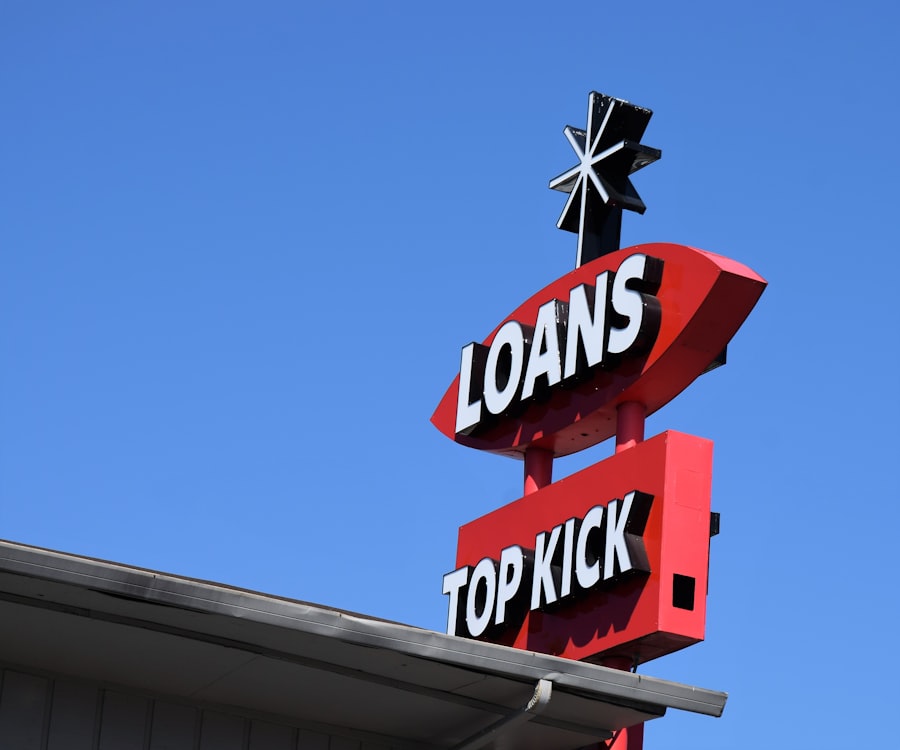A chattel loan is a specific type of financing that is secured by personal property rather than real estate. The term “chattel” refers to movable personal property, which can include items such as manufactured homes, boats, vehicles, and even certain types of equipment. Unlike traditional mortgages that are tied to immovable property, chattel loans are designed to facilitate the purchase of these movable assets.
This type of loan is particularly popular in situations where the borrower is looking to finance a manufactured home that is not permanently affixed to land, making it a unique financial instrument in the realm of personal property financing. Chattel loans typically have different terms and conditions compared to conventional loans. They often come with shorter repayment periods and higher interest rates, reflecting the increased risk associated with lending against personal property.
The lender retains a security interest in the chattel, meaning they have the right to repossess the item if the borrower defaults on the loan. This aspect makes chattel loans an attractive option for individuals who may not qualify for traditional financing due to credit issues or other financial constraints, as the collateral can mitigate some of the lender’s risk.
Key Takeaways
- Chattel loans are specialized loans used to finance movable personal property, unlike traditional mortgages tied to real estate.
- Eligibility for chattel loans often requires proof of income, creditworthiness, and the asset being financed as collateral.
- Pros include flexible terms and faster approval, while cons may involve higher interest rates and shorter repayment periods.
- Applying for a chattel loan involves gathering financial documents, selecting the right lender, and understanding loan terms thoroughly.
- Effective use of chattel loans can support investment strategies and financial planning when choosing the best lender and loan type.
How Chattel Loans differ from Traditional Mortgages
The fundamental distinction between chattel loans and traditional mortgages lies in the type of property being financed. Traditional mortgages are specifically designed for real estate transactions, where the property serves as collateral for the loan. In contrast, chattel loans focus on personal property, which can be more fluid and less stable in terms of value retention.
For instance, while a home may appreciate over time, a vehicle or manufactured home may depreciate, influencing the lender’s risk assessment and the terms of the loan. Another significant difference is the duration and structure of the loans. Traditional mortgages typically have longer repayment periods, often spanning 15 to 30 years, allowing borrowers to spread out their payments over an extended timeframe.
Chattel loans, however, usually feature shorter terms, often ranging from 5 to 20 years. This shorter duration can lead to higher monthly payments, but it also means that borrowers can pay off their debt more quickly. Additionally, interest rates on chattel loans are generally higher than those on traditional mortgages due to the perceived risk associated with personal property financing.
Understanding the Eligibility Requirements for Chattel Loans

Eligibility requirements for chattel loans can vary significantly from one lender to another, but there are common criteria that most financial institutions consider when evaluating potential borrowers. One of the primary factors is creditworthiness. While chattel loans may be more accessible than traditional mortgages for individuals with less-than-perfect credit, lenders still assess credit scores and credit histories to gauge the likelihood of repayment.
A higher credit score can lead to better loan terms, including lower interest rates and more favorable repayment schedules. Income verification is another critical component of the eligibility assessment. Lenders typically require proof of income to ensure that borrowers have the financial capacity to meet their monthly obligations.
This may involve providing recent pay stubs, tax returns, or bank statements. Additionally, lenders may consider debt-to-income ratios to evaluate how much of a borrower’s income is already committed to existing debts. A lower ratio indicates a healthier financial situation and can improve a borrower’s chances of securing a chattel loan.
The Pros and Cons of Chattel Loans
| Aspect | Pros | Cons |
|---|---|---|
| Collateral | Loan is secured by the asset, often allowing easier approval. | If you default, the lender can repossess the asset. |
| Interest Rates | Typically lower than unsecured loans due to collateral. | Rates can still be higher than traditional mortgage loans. |
| Loan Amount | Can finance the full value of the asset. | Loan amount is limited to the value of the asset. |
| Loan Term | Usually shorter terms, allowing quicker payoff. | Shorter terms may mean higher monthly payments. |
| Flexibility | Can be used for various types of personal property. | Less flexible than unsecured loans in terms of use. |
| Approval Process | Faster approval due to secured nature. | Requires appraisal and documentation of the asset. |
Chattel loans come with their own set of advantages and disadvantages that potential borrowers should carefully consider before proceeding. One of the primary benefits is accessibility; chattel loans can be easier to obtain than traditional mortgages, particularly for individuals with limited credit histories or those seeking to finance movable assets like manufactured homes or recreational vehicles. This accessibility can open doors for many who might otherwise struggle to secure financing through conventional means.
However, there are notable drawbacks associated with chattel loans as well. The higher interest rates and shorter repayment terms can lead to increased monthly payments, which may strain a borrower’s budget. Additionally, because these loans are secured by personal property that may depreciate over time, borrowers could find themselves in a situation where they owe more than the asset is worth—a scenario known as being “upside down” on a loan.
This risk underscores the importance of thorough financial planning and consideration before committing to a chattel loan.
How to Apply for a Chattel Loan
Applying for a chattel loan involves several steps that borrowers should be prepared to navigate. The first step is to research potential lenders who offer chattel financing options. This may include banks, credit unions, and specialized lenders who focus on personal property loans.
Each lender may have different terms and conditions, so it’s essential to compare offers carefully. Once a suitable lender has been identified, borrowers will need to gather necessary documentation for the application process. This typically includes proof of identity, income verification documents, and information about the asset being financed.
Lenders will also require details about any existing debts or financial obligations to assess overall creditworthiness. After submitting the application and required documents, borrowers should be prepared for a waiting period during which the lender reviews their application and makes a decision.
Exploring the Different Types of Chattel Loans

Chattel loans can be categorized into various types based on the nature of the asset being financed and the specific needs of the borrower. One common type is the manufactured home chattel loan, which is specifically designed for individuals looking to purchase mobile or manufactured homes that are not permanently affixed to land. These loans often have unique terms tailored to accommodate the specific characteristics of manufactured housing.
Another type includes vehicle chattel loans, which are used for financing cars, trucks, motorcycles, or recreational vehicles. These loans typically require less documentation than traditional auto loans and may offer more flexible terms for borrowers with varying credit profiles. Additionally, equipment chattel loans are available for businesses looking to finance machinery or tools necessary for operations.
These loans can be crucial for startups or small businesses that need access to essential equipment without tying up significant capital.
Tips for Finding the Best Chattel Loan Lender
Finding the right lender for a chattel loan requires careful consideration and research. One effective strategy is to seek recommendations from friends or family members who have experience with chattel financing. Personal referrals can provide valuable insights into lenders’ reputations and customer service quality.
Additionally, online research can yield a wealth of information about various lenders’ offerings and terms. Borrowers should look for lenders who specialize in chattel loans and compare interest rates, fees, and repayment terms across multiple institutions. Reading customer reviews and testimonials can also help gauge borrower satisfaction and identify any potential red flags associated with specific lenders.
It’s also advisable for borrowers to check whether lenders offer pre-qualification options. Pre-qualification allows individuals to get an estimate of how much they might be able to borrow without impacting their credit score. This step can help borrowers understand their options better and make informed decisions about which lender aligns best with their financial needs.
Making the Most of Chattel Loans: Investment and Financial Planning
To maximize the benefits of a chattel loan, borrowers should engage in thorough financial planning and consider how this type of financing fits into their overall investment strategy. For instance, if financing a manufactured home through a chattel loan, it’s essential to evaluate whether this investment aligns with long-term housing goals or if it serves as a temporary solution while saving for more permanent housing options. Moreover, understanding the total cost of ownership associated with the financed asset is crucial.
Borrowers should factor in not only monthly payments but also insurance costs, maintenance expenses, and potential depreciation when assessing affordability. Creating a budget that accounts for these variables can help ensure that borrowers remain financially stable throughout the life of the loan. Additionally, borrowers should consider how they might leverage their financed asset for future financial opportunities.
For example, if they finance a vehicle through a chattel loan, they might explore options for using it in a side business or rideshare service to generate additional income. By viewing chattel loans as part of a broader financial strategy rather than isolated transactions, borrowers can make informed decisions that enhance their overall financial well-being.



